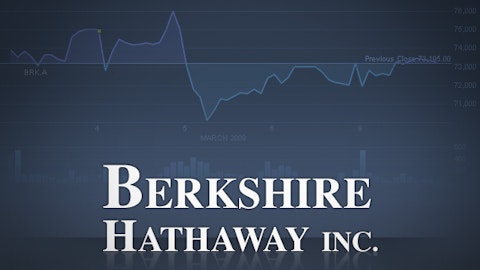With the government buying $40 billion in mortgage-backed securities every month, in addition to $45 billion in long-term treasuries, QE3 continues to have a huge impact on mortgage REITs for the time being. Ending it could provide some short-term pain and long-term gain for two companies in particular – Annaly Capital Management, Inc. (NYSE:NLY) and American Capital Agency Corp. (NASDAQ:AGNC).
How close are we to the end?

The Fed said the program will continue until unemployment drops below 6.5% or inflation rises above 2%. With inflation rates testing those levels and unemployment falling to 7.5% in the latest report, it’s only a matter of time before the Fed begins tapering its spending.
New York Fed President William Dudley indicated we’re still three or four months away from a real decision by the Fed regarding the end of QE3. They fear that tightening the economic policy prematurely will yield far more drastic results than continuing it slightly too long.
So, how will mREIT investors feel the impact of a smaller government presence?
Increased long-term interest rates
The idea behind QE3 is that the government buys $85 billion worth of long-term debt, and artificially keeps the interest rates low. This makes it easier for Americans to buy a home, leading to an increase in value for the beaten-down housing market.
When the Fed tapers its spending, the demand will have to be made up by the private sector, which generally requires a higher interest rate than the government. As a result, long-term interest rates will begin to rise.
Decline in book value
Both Annaly Capital Management, Inc. (NYSE:NLY) and American Capital Agency Corp. (NASDAQ:AGNC) invest in fixed-rate long-term bonds. Higher long-term interest rates imply lower long-term bond prices. That means both companies will see a decline in the value of their holdings.
We’re already seeing this decline as the market has anticipated the end of QE3 since the beginning of the year. In the first quarter, American Capital Agency Corp. (NASDAQ:AGNC) reported a $2.21 loss per share in “other comprehensive areas” – mostly unrealized investment losses. The company’s book value declined 9% to $28.93. Annaly’s book value fell 4.1% last quarter.
Increased spreads
While long-term interest rates will rise with the end of QE3, short-term rates will remain largely unaffected. That means the spread – the difference between the long-term rate and short-term rate – will increase.
Generating a wide spread is the main business for mREITs, but it’s even more important to those that invest in long-term mortgage bonds like Annaly and American Capital Agency Corp. (NASDAQ:AGNC). The post QE environment will be very beneficial to these companies’ earnings potential.
But without the impact of the Fed’s consistent purchases, yields on mortgage bonds will experience increased volatility. As a result, Annaly or American Capital Agency Corp. (NASDAQ:AGNC) will have to spend more on hedging their interest rate risk.
What’s an investor to do?
It seems clear that the end of QE3 means a short-term decrease in the book value of both Annaly and American Capital.
Last fall, Annaly announced a $1.5 billion share buyback program and American Capital announced a similar $500 million buyback. Both programs indicate the company will buy shares when they dip below book value. These huge buybacks have the negative effect of tying the share price to a declining book value.
Potential investors may be better off waiting for a better buying opportunity after book value stabilizes. Once the companies replace their existing investments with new, higher yield investments, both companies will be poised to outperform.
In the meantime, those itching to get into mREITs may be better served by a company that invests in short-term securities. Capstead Mortgage Corporation (NYSE:CMO) is one of the most defensive names in the industry.
Its book value is least likely to change as a result of changes in monetary policy. This is evident in the company’s last quarter, when its book value actually increased slightly, while its long-term bond holding counterparts all saw dramatic falls in book value. On the other hand, the short-term securities strategy won’t allow Capstead Mortgage Corporation (NYSE:CMO) to take advantage of the future increase in spread.
I currently own shares of Annaly Capital Management, Inc. (NYSE:NLY). But in the next three or four months, I may replace part of my position with Capstead Mortgage Corporation to preserve capital. I’m usually a buy and hold investor, but when the underlying story changes – for example, from decreasing to increasing long-term interest rates – it’s time to make some adjustments.
The article The Ups and Downs of the End of QE3 originally appeared on Fool.com and is written by Adam Levy.
Adam is a member of The Motley Fool Blog Network — entries represent the personal opinion of the blogger and are not formally edited.
Copyright © 1995 – 2013 The Motley Fool, LLC. All rights reserved. The Motley Fool has a disclosure policy.
